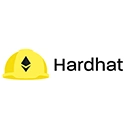Hardhat is a powerful Ethereum development framework that allows developers to create, test, and deploy smart contracts. One of the key features of Hardhat is its extensibility through plugins. Plugins enhance Hardhat's functionality by adding new features, automating tasks, and integrating with other tools. In this article, we will explore how plugins enhance Hardhat's capabilities, along with examples and code snippets.
1. Extending Core Features
Plugins can extend the core features of Hardhat by providing additional functionalities that are not available out of the box. For example, the hardhat-ethers plugin integrates the Ethers.js library, which allows developers to easily interact with the Ethereum blockchain.
npm install --save-dev @nomiclabs/hardhat-ethersAfter installing the plugin, you can use Ethers.js to deploy contracts, send transactions, and interact with smart contracts:
require("@nomiclabs/hardhat-ethers");
async function main() {
const Contract = await ethers.getContractFactory("MyContract");
const contract = await Contract.deploy();
await contract.deployed();
console.log("Contract deployed to:", contract.address);
}
main();2. Automating Tasks
Plugins can automate repetitive tasks, making the development process more efficient. For example, the hardhat-gas-reporter plugin automatically generates gas usage reports for your smart contracts during testing.
npm install --save-dev hardhat-gas-reporterAfter installing and configuring the plugin, you can run your tests, and the gas report will be generated automatically:
require("hardhat-gas-reporter");
module.exports = {
gasReporter: {
currency: 'USD',
gasPrice: 21
}
};npx hardhat test3. Integrating with External Tools
Plugins can also integrate Hardhat with external tools and services, enhancing the development workflow. For instance, the hardhat-etherscan plugin allows you to verify your smart contracts on Etherscan directly from the Hardhat environment.
npm install --save-dev @nomiclabs/hardhat-etherscanTo use this plugin, configure it in your hardhat.config.js:
require("@nomiclabs/hardhat-etherscan");
module.exports = {
etherscan: {
apiKey: "YOUR_ETHERSCAN_API_KEY"
}
};After deploying your contract, you can verify it with a simple command:
await hre.run("verify:verify", {
address: contract.address,
constructorArguments: []
});4. Enhancing Testing and Debugging
Plugins can improve the testing and debugging experience by providing additional tools and utilities. For example, the hardhat-waffle plugin offers a set of testing utilities that make it easier to write and run tests for your smart contracts.
npm install --save-dev @nomiclabs/hardhat-waffleAfter installing the plugin, you can use the Waffle testing framework to write tests:
require("@nomiclabs/hardhat-waffle");
describe("MyContract", function () {
it("Should deploy and set value", async function () {
const Contract = await ethers.getContractFactory("MyContract");
const contract = await Contract.deploy();
await contract.deployed();
await contract.set(42);
expect(await contract.get()).to.equal(42);
});
});5. Customizing the Development Environment
With plugins, you can customize your Hardhat development environment to fit your specific needs. For example, the hardhat-deploy plugin allows for organized deployment scripts and management of contract deployments across different networks.
npm install --save-dev hardhat-deployAfter installing the plugin, you can create structured deployment scripts:
async function deploy() {
const { deployer } = await getNamedAccounts();
const Contract = await ethers.getContractFactory("MyContract");
const contract = await Contract.deploy({ from: deployer });
await contract.deployed();
console.log("Contract deployed to:", contract.address);
}
module.exports = deploy;6. Conclusion
Plugins significantly enhance Hardhat's functionality by extending core features, automating tasks, integrating with external tools, improving testing and debugging, and allowing for customization of the development environment. By leveraging plugins, developers can streamline their workflow and focus on building robust smart contracts with greater efficiency.

